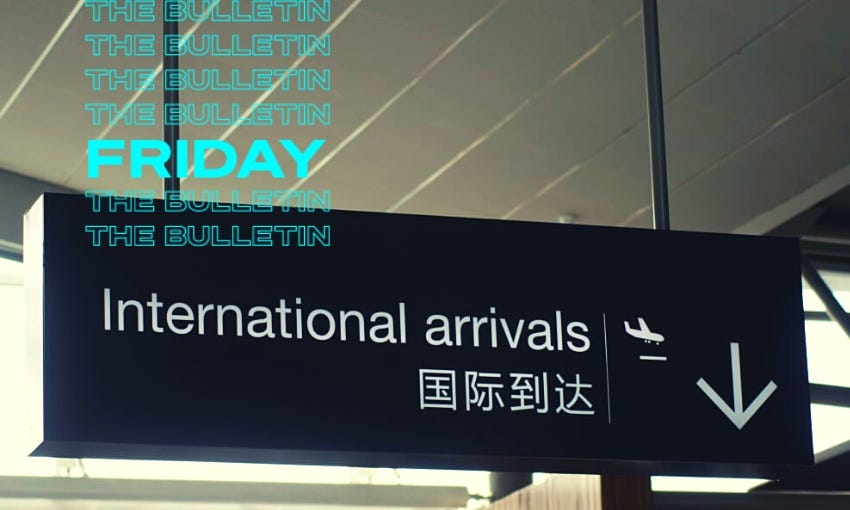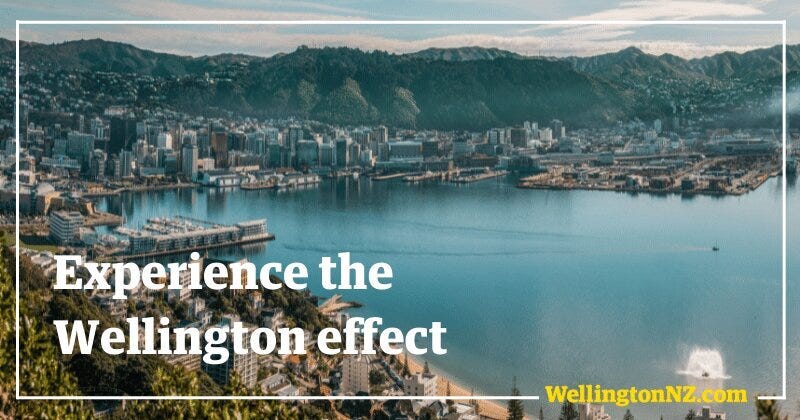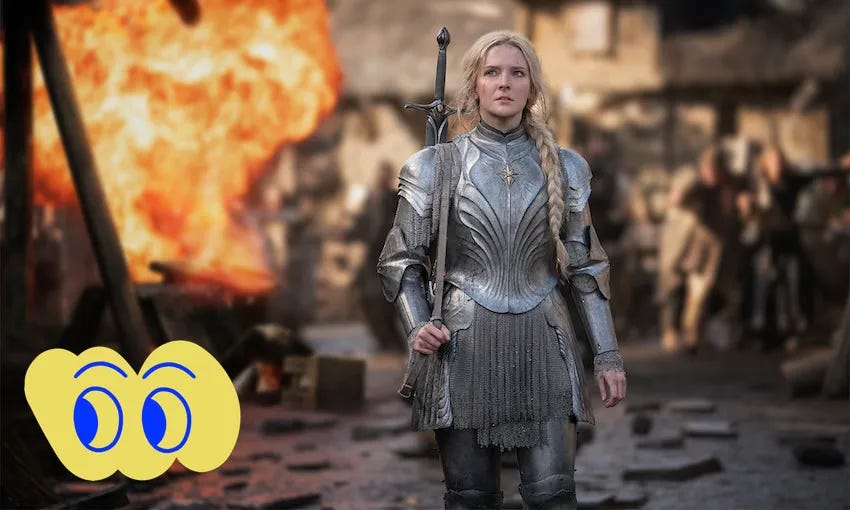Are we match fit for new migration trends?
Demand for visitor visas is three times what was expected. An incident management team has been set up at Immigration NZ. Meanwhile, global trends suggest international student flows could reverse
Mōrena and welcome to The Bulletin for Friday, September 2, by Anna Rawhiti-Connell. Presented in partnership with Z Energy.
In today’s edition: mask mandates under review; foreign minister responds to UN report on China’s possible crimes against humanity; a tale of two epic tax fails; but first, demand for visitor visas three times what was expected.
An incident management team has been brought into Immigration NZ to help speed up visa processing (Photo RNZ/123RF)
Australia confronts major workforce issues
A lot is riding on our ability to deal with workforce shortages and rebuild sectors badly impacted by the pandemic. The global labour market is in turmoil, which has forced the government to soften its philosophical stance on immigration and, as Liam Dann says in this episode of The Detail, not be “too restrictive when it comes to migration”. It creates a reliance on our ability to attract people to New Zealand to work and study while the rest of the world competes for migrants and international student dollars too. Australia is short hundreds of thousands of workers. A government-led jobs and skills summit is currently underway in Canberra.
Incident management team brought in to Immigration New Zealand
The need to address the issue at pace, after a period of prolonged border shutdown, loads pressure onto our visa processing capacity. As RNZ’s Gill Bonnett reports, an incident management team has been brought into Immigration New Zealand (INZ) to speed up work and visitor visas. It’s probably fair to acknowledge visa processing delays are also a global problem, with an enormous backlog across the Tasman leaving one million prospective workers in limbo while in Canada nearly 169,000 international students are awaiting approval of their study permit applications. It’s also fair to question whether we, or perhaps anywhere right now, are match fit for mass migration.
Visitor visa demand has been around three times higher than expected
As BusinessDesk’s Jem Traylen reports (paywalled), an email sent to INZ staff on Wednesday by head of INZ, Alison McDonald, revealed that visitor visa demand has been around three times higher than expected since the borders reopened. The email said there was “more work to be done to process work and visitor visas at the speed employers and applicants expect, and to prepare for the surge in student visas from September.” National Party immigration spokesperson Erica Stanford said it was a highly irregular move. Immigration minister Michael Wood responded to questions about the incident management team on Tuesday, saying INZ had recently gone through a transformation programme and completed a “surge” recruitment plan.
International students returning but will we reach pre-pandemic levels?
So far we’ve had a smattering of stories about international students returning to New Zealand. The pandemic wiped $1b off the earnings of an industry that was worth $5b before the pandemic. We’ve been told to expect a slow recovery but will it actually ever return to pre-pandemic levels? Changes to immigration settings have impacted post-study work rights and require international students to have increased funds to support themselves while studying. This from the Asia New Zealand Foundation’s Simon Draper is a good read. Draper writes that the flow could go the other way. Where the Western world has seen Asia as a supplier of international students, the model is shifting as Asian universities invest in innovation and technology and shift up the global education rankings. US Universities are already facing headwinds.
Inspiring success in our capital
There’s a special kind of magic that exists in Wellington. That magic can be found in the communities who come together to support the entrepreneurs, foodies, creatives and businesspeople with big goals, in the sunshine and even in the birds that gather on the streets of the city. The Spinoff spoke to artist Jonathan Campbell and business owners Rachel Taulelei from Oho and James Fuller from Hnry about how Wellington has supported them to succeed… and about pigeons. Read more here (sponsored).
Mask mandates under review
The Otago Daily Times’ Daisy Hudson has news this morning that the government is reviewing mask mandates and considering only keeping them in the most high-risk health settings. Covid settings are being reviewed in the next fortnight and the ODT reports that an email was sent to disability support providers by the Ministry of Disabled People this week which asked for feedback within 24 hours on a proposal to "significantly narrow" where masks had to be worn. The disability sector is concerned about the impact of the proposed changes and the rushed consultation. It's not explicitly mentioned in the email but the sector has surmised that if mask use is removed from health settings, it is likely that removal from other settings like retail is on the cards. Covid response minister Ayesha Verrall said no decision has been made.
Foreign minister responds to report finding China has committed possible crimes against humanity
A new and long awaited report from the United Nations has found that China has committed possible crimes against humanity and “serious human rights violations” of the Uyghur people. Foreign minster Nanaia Mahuta has called on China to act and expressed grave concerns. UN High Commissioner for Human Rights, Michelle Bachelet, urged China to promptly release all people “arbitrarily deprived of their liberty” in training camps, prisons or other detention facilities. Meanwhile, as Ben McKay reports, the opposition has downplayed the report with National Party foreign affairs spokesperson Gerry Brownlee saying "What's most poignant for me (about the report) is that it has recognised that some of the activities of the Chinese government has been about defeating terrorist activity in Xinjiang."
The Spinoff Members is a community dedicated to supporting quality, homegrown journalism.
From our newsletters and podcasts, to our coverage of te ao Māori and political reporting – the support of readers like you makes this work possible and helps to ensure it remains freely available to all. If you can, please consider making a contribution today.
A tale of two epic tax fails
Revenue minister David Parker steered the government into a political minefield this week with his extension of GST to all Kiwisaver fees that was gone by lunchtime within a day. On the latest episode of When the Facts Change, Bernard Hickey talks with tax expert and historian Terry Baucher about why this epic fail pales in comparison to another from 33 years ago when Labour’s David Caygill failed to introduce a capital gains tax to match our “perfect” GST and income tax systems.
Click and collect
Plain language bill passes second reading. Chris Bishop uses plain language to criticise it.
Free home energy assessments deliver more than cost of living payments.
The options for dealing with the GST issue on Kiwisaver and managed funds.
IRD still missing bank account details for just under 110,000 of the people entitled to cost of living payments.
Spring has sprung but only meteorologically.
Got some feedback about The Bulletin, or anything in the news? Get in touch with me at thebulletin@thespinoff.co.nz.
If you liked what you read today, share The Bulletin with friends, family and colleagues.
Happy Lord of the Rings: The Rings of Power release day to all who celebrate. Sam Brooks has reviewed it for those unafraid of mild spoilers or the discussion of Tolkien lore. Toby Morris has conducted his now traditional review of local election hoarding designs – the good, the bad and the absolutely cooked. Bernard Hickey tells the story of this week's almighty tax furore, and the original sin that started us on this road more than 30 years ago. Ellie Martel writes about the rapid and distressing disappearance of our once abundant scallop beds. And Maddy Phillipps says ditch the New York Times 36 questions, the best way to judge a potential new partner's character is to watch Below Deck with them.
Dame Valerie Adams joins board of High Performance Sport
Adams is one of four new appointees to the board alongside Dame Noeline Taurua, Duane Kale and Don Tricker. The appointments come after criticism of HPNZ over the last few years. The latest round was prompted by the report into the death of cyclist Olivia Podmore. That catalogued a range of problems and the need to address the power imbalance between athletes and sports organisations. Adams has said she won’t be afraid to speak out and hopes to be the athlete's voice at the table.
It’s Friday so…
A Puma’s fan was so overwhelmed by the team’s win over the All Blacks last weekend that they got a tattoo of coach Michael Cheika on what 1News quaintly described as “their hind”. Cheika was a bit shocked but seemed genuinely amused by it. "I'm not sure where the tattoo is and I'm not sure what it looks like but thanks." I solemnly swear that if anyone gets a tattoo of Ian Foster and “hind” is as not-safe-for-work as it gets, I will run it in this spot. This is not a challenge (please, think of your future), just a call to keep me updated. Although let’s see where we land on Saturday night first.











The Opposition to the sensible Plain Language Bill is ignorant and ableist.
Immigration is another thing we are reactive about and the conversation is superficial. We can't resolve our skills shortages through immigration. In fact, immigrants will require schools, health care, housing etc, so immigrants exacerbate the skills shortages. A healthy society requires movement in and out. There are skills that are not available here, and people will want to look for opportunities abroad. People will relocate for family reasons, or for a better quality of life. Young people will come here for working holidays. Education broadens the mind, and international education benefits both the student and the school. These are all good things. But employers need to be aware of what they are asking for, and how it is not sustainable to keep importing more talent to plug gaps in our education/employment structures, and to cover for our low investment in productivity.